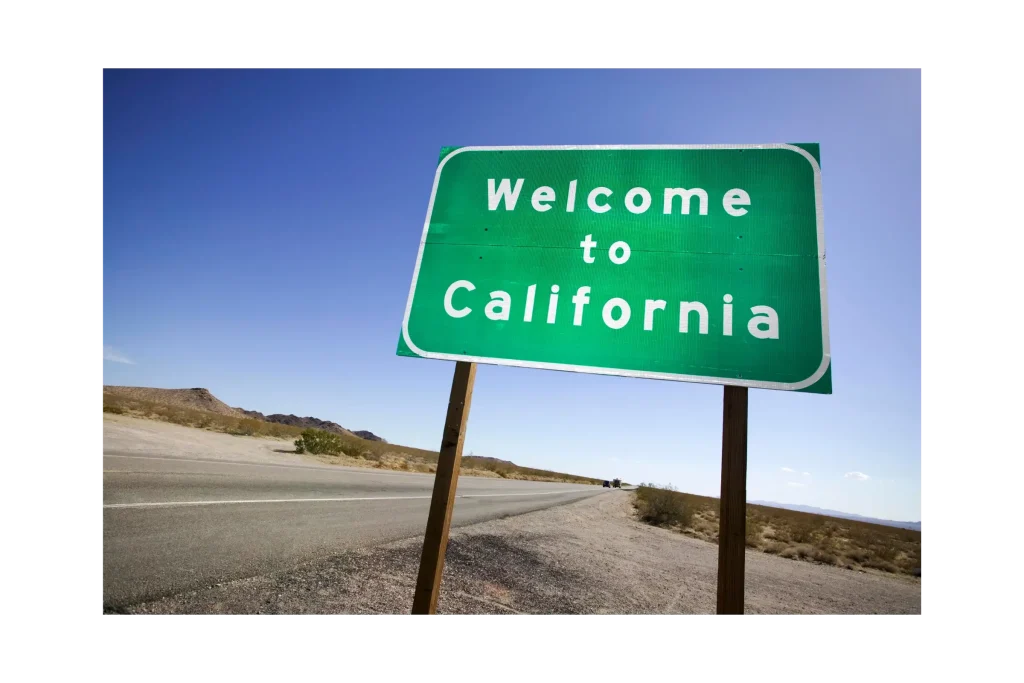- Legal Compliance – How to follow California tenant screening laws while staying compliant with Fair Housing regulations and the Fair Credit Reporting Act (FCRA).
- What Landlords Can & Cannot Check – The limits on background checks, including how far back landlords can look at criminal records and rental history.
- Key Tenant Protections – Privacy rights, maximum screening fees, and what landlords must disclose to applicants.
- Reusable Tenant Screening Reports – A new legal change allowing applicants to use the same screening report multiple times within a 30-day period.
- Best Practices for Landlords – How to select a compliant tenant screening service, interpret reports, and avoid costly mistakes.
Understanding California Tenant Background Check Laws
The landscape of California tenant background check laws is intricate and nuanced. As a landlord, navigating these laws during the tenant screening process can be complex.Overview of Tenant Screening Laws in California
In California, landlords must adhere to specific regulations when conducting a background check on potential tenants, which includes securing written permission prior to initiating any kind of screening or obtaining credit reports. Understanding California tenant screening laws is essential to ensure compliance with state and federal regulations, including obtaining written consent from applicants before conducting screenings or pulling credit reports. A key point that property managers should note: you’re not allowed to charge more than $52.46 per applicant for rental application fees as of February 2023 – this includes costs related to running credit checks or other types of screenings.Key Aspects of California’s Tenant Background Check Laws
An important aspect about the state’s tenant screening laws involves how criminal records are treated during the application process. While some states give landlords carte blanche in considering an applicant’s criminal history, in sunny California, things work differently. You see, if an individual was convicted but has completed their sentence more than seven years ago, such information cannot be used against them when applying for housing. In essence: past mistakes shouldn’t follow potential tenants forever – giving people a fair shot at securing housing even with blemishes on their record.Legal Requirements for Tenant Background Checks in California
When conducting tenant background checks, California landlords and property managers must follow both state and federal regulations to ensure fairness and compliance. Failure to adhere to these laws can lead to legal disputes and potential penalties.Compliance with Federal and State Regulations
Tenant screenings in California must align with both federal laws and state-specific tenant protection regulations:- Fair Credit Reporting Act (FCRA) – This federal law dictates how credit data can be used and ensures that tenants have access to accurate credit reports.
- California Civil Code – Adds additional tenant protections, including restrictions on screening fees and reporting certain criminal records.
- Screening Fee Limitations – As of January 2025, California landlords cannot charge more than $62.02 per applicant for rental application fees. Fees are adjusted annually for inflation, and charging a fee when no units are available is prohibited. Unused fees must be refunded.
Prohibited Screening Factors in California
California has strict laws on what landlords can and cannot consider in a background check. Landlords must not use the following as deciding factors:- Race, religion, gender, or national origin – Under Fair Housing Laws, these cannot influence leasing decisions.
- Criminal arrest records (without conviction) – Unlike some states, California law prohibits using mere arrests as a reason to deny a tenant.
- Older criminal convictions – Convictions older than seven years generally cannot be considered in rental decisions.
- Source of income – Landlords cannot discriminate based on legal sources of income, including government assistance programs.
Ensuring Fair and Compliant Tenant Screening
To avoid legal risks, landlords should:- Obtain written consent before conducting any background check.
- Charge only the permitted screening fee and refund any unused portion.
- Ensure all decisions align with Fair Housing regulations to prevent discriminatory practices.
Unique Aspects of California Tenant Background Check Laws
California’s tenant background check laws vary across different regions, with some cities imposing stricter protections than state regulations. Landlords must stay informed about local ordinances to ensure compliance.Regional Differences in Tenant Screening Laws
Certain cities, like San Francisco, Santa Monica, and Berkeley, enforce additional tenant protections:- San Francisco prohibits landlords from considering criminal records in tenant screening to remove housing barriers for rehabilitated individuals.
- Santa Monica and Berkeley have rent control laws, restricting how landlords screen renters based on financial status rather than rental reliability.
Navigating Local Screening Ordinances
Property owners must balance thorough tenant screening with compliance with state and local laws. Staying updated on evolving regulations is crucial to avoiding legal risks. To streamline compliance, landlords should use a tenant screening service that integrates California’s regional laws, ensuring a fair and lawful selection process while protecting rental investments.Tenant Rights and Protections in California
California offers a variety of rights and protections to its tenants, especially during the screening process. It’s important for both landlords and prospective renters to be aware of these provisions. To ensure compliant and effective screenings, landlords can use tenant background checks for property managers to vet applicants while following California’s tenant protection laws.Understanding Tenant Privacy Rights
In California, privacy laws play an integral role in protecting tenants. They ensure that sensitive information is handled responsibly during tenant screenings. For instance, written receipt requirements mandate that homeowners provide itemized cost breakdowns when collecting application fees. This law safeguards transparency by helping applicants understand where their money goes while preventing property owners from charging exorbitant prices under false pretenses. These rules serve as one layer of protection within the complex realm of tenant privacy rights in California.The Limits on Application Fees
Another critical aspect relates to how much landlords can charge for application fees – there are limits set by state regulations. As per February 2023 data, this fee cannot exceed $52.46 per applicant – ensuring fair practices across rental properties throughout the Golden State.| Rental Application Fee Cap (Feb 2023) |
|---|
| $52.46 Per Applicant |
Types of Background Checks Allowed in California
California landlords can conduct several types of background checks when screening tenants. However, state and federal laws regulate how these checks are performed and what information can be considered.1. Credit Checks
A tenant credit check helps landlords assess an applicant’s financial responsibility and ability to pay rent on time. This typically includes:- Credit score
- Payment history (on loans, credit cards, and previous rent)
- Current debts and financial obligations
2. Criminal Background Checks
Landlords can review criminal history, but California law places restrictions on how this information is used:- Only convictions within the past seven years can be considered.
- Arrest records alone cannot be used to deny housing.
- Some local ordinances, such as those in San Francisco, ban landlords from using criminal records in tenant screening.
3. Rental History Verification
This check provides insight into an applicant’s past tenancy behavior, including:- Timeliness of rent payments
- Lease violations or property damage
- Prior evictions (if applicable)
4. Employment & Income Verification
Verifying a tenant’s employment status and income stability helps ensure they can afford the rent. This process may involve:- Reviewing pay stubs or tax returns
- Contacting the employer to confirm job stability
- Checking bank statements for financial security
5. Personal References
Some landlords opt to contact previous landlords or personal references for additional insights into a tenant’s character and reliability.New Screening Law Updates for 2025
As of January 1, 2025, Assembly Bill 2493 introduces new protections for rental applicants regarding screening fees:- Landlords must process applications in order and approve the first qualified applicant before reviewing others.
- Screening fees must be refunded if an applicant is not selected within seven days after another tenant is approved.
- If no decision is made within 30 days, the fee must also be refunded to the applicant.
Best Practices for Landlords and Property Managers in California
Navigating the tenant screening process can be a daunting task, especially when it comes to understanding California Tenant Background Check Laws. However, with some helpful tips and best practices, landlords and property managers can make sure they’re staying within legal boundaries while selecting their next tenants.Ensuring Compliance with Tenant Screening Laws
The first step towards compliance is knowledge. Understanding both federal laws and local regulations will let you screen prospective tenants without crossing any legal lines. So take time to get familiarized with not just state-wide rules but also ordinances that apply specifically to your locality like San Francisco Bay Area Tenants’ Rights or other regional variations.Avoid Discriminatory Actions in the Screening Process
Denying rental based on protected classes is against Fair Housing laws at both federal and state levels. It’s crucial that every applicant gets an equal chance irrespective of race, religion, sex or disability among others.Maintaining Transparency in Application Fees
Always maintain transparency throughout the application process. For instance, if there are costs associated with tenant background checks – say a credit report fee – clearly communicate this upfront along with providing receipts itemizing all expenses incurred during such screenings. If actual out-of-pocket costs turn out less than what was collected as part of application fees, then refunding the difference back to applicants isn’t just good practice but legally mandated too. Constructing trust between you and potential renters can encourage them to select your rental unit over other options.Keeping Proper Records for Legal Protection
Finally, remember to keep records of everything from initial applications to final signed agreements to ensure you have evidence to support decisions should you ever face complaints or disputes in the future. Using a reliable software platform like RentSafe makes managing these documents much easier by offering digital storage and streamlined access whenever you need them. These procedures are not only about abiding by the law; they also serve as a way to demonstrate regard for prospective tenants and construct a beneficial relationship from the start.New Developments in Tenant Background Check Laws
With the onset of 2023, landlords and property managers need to get familiar with new changes introduced by California’s Assembly Bill No. 2559 regarding tenant background checks. The legislation reshapes existing consumer reports into what is now known as a reusable tenant screening report. This development stands out for its practicality; it lets prospective tenants use their reusable reports multiple times within a span of 30 days. So if you’re applying for several rental units during this period, one report suffices all applications – saving time and money. The assembly bill was designed to enhance transparency between property owners and potential renters while making the process more economical for applicants. It seeks to alleviate some common issues that come up during tenant screenings such as application fees or privacy concerns around credit history checks.Impact on Landlords and Property Managers
The advent of reusable screening reports also impacts landlords’ operations. You’ll need to adapt your practices when using these types of reports because they differ from traditional single-use ones in important ways. If an applicant provides you with a reusable report from a reporting agency complying with federal laws, make sure not reject it outrightly based on your past experiences or assumptions about them being unreliable or incomplete.Moving Forward With Reusable Reports
To ensure compliance with this law change, consider incorporating policies that recognize valid reusable tenant screening reports into your selection criteria upfront. This step will help reduce any confusion later in the process both for yourself and applicants alike. In doing so, remember that fairness should be at the heart of each decision-making point throughout your entire application process—from start until a rental agreement is signed. As always, being up-to-date with California tenant screening laws remains key to protecting your business interests while ensuring fair housing rights for all. This highlights the need for landlords and property managers to remain aware of recent developments in tenant screening laws in California, emphasizing the dynamic nature of such regulations. By doing so, you’ll be able to continue providing an efficient service that respects tenants’ rights while maintaining profitable operations on your end.Simplify Tenant Screening with RentSafe
Finding the right tenants shouldn’t be stressful. With RentSafe, you can streamline the tenant screening process and stay compliant with California’s regulations-all while making smarter leasing decisions.- Get instant access to tenant background checks
- Stay compliant with California screening laws
- Protect your rental business with thorough tenant reports
FAQs in Relation to California Tenant Background Check Laws
What are the latest tenant background check laws in California for 2025?
As of January 1, 2025, Assembly Bill 2493 requires landlords to process rental applications in order and approve the first qualified applicant before considering others. Additionally:
- Screening fees must be refunded if an applicant isn’t selected within seven days after another tenant is approved.
- If no decision is made within 30 days, the fee must also be refunded to the applicant.
- Assembly Bill 2559 (effective January 1, 2023) still allows reusable Tenant Screening Reports (TSRs) to be used within 30 days of their creation.
How far back do background checks go for rentals in California?
California law limits criminal background checks to seven years for rental applications. Landlords cannot consider:
- Arrest records that didn’t lead to convictions.
- Convictions older than seven years.
- Criminal records in certain cities, like San Francisco, where local laws prohibit their use in tenant screening.
What are the key background check regulations landlords must follow?
Landlords conducting tenant screenings in California must comply with:
- Fair Housing Laws – Prohibiting discrimination based on race, gender, religion, disability, family status, or other protected categories.
- Privacy Laws – Ensuring tenant information is securely handled and not misused.
- Screening Fee Limits – As of 2025, landlords cannot charge more than $59.67 per applicant for tenant background checks.
What types of background checks do most landlords conduct in California?
Most landlords use a combination of:
- Credit Checks – Reviewing credit scores, payment history, and outstanding debts.
- Criminal Background Checks – Checking for serious offenses within the past seven years (except in cities where this is restricted).
- Rental History Verification – Confirming previous lease agreements, timely rent payments, and any past evictions.
- Employment & Income Verification – Ensuring a tenant can afford rent based on income stability.
Can a landlord reject an applicant based on criminal history?
It depends on the location. California law allows landlords to consider convictions within the past seven years, but they cannot deny housing solely based on:
- Arrest records that didn’t lead to a conviction.
- Juvenile records.
- Certain criminal history in protected cities, like San Francisco, where “Ban the Box” laws restrict using criminal records in tenant screenings.
Can a landlord run a background check without tenant permission?
No. Under the Fair Credit Reporting Act (FCRA) and California Civil Code, landlords must obtain written consent before conducting a tenant background check. If a landlord runs a check without permission, the tenant may have legal grounds to file a complaint or lawsuit.








